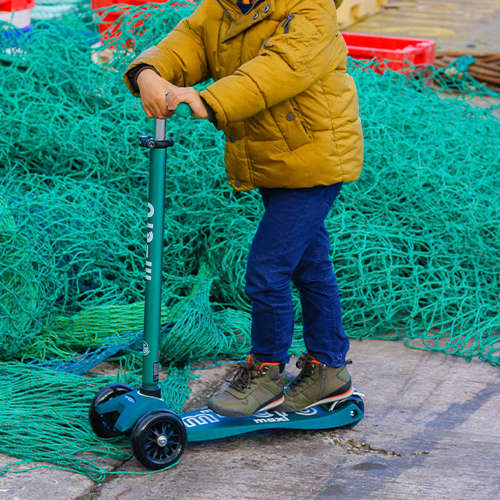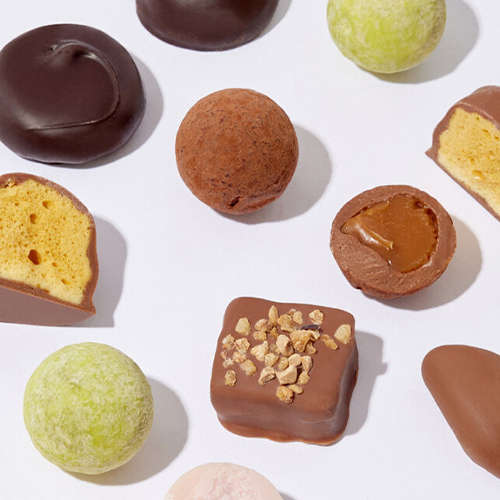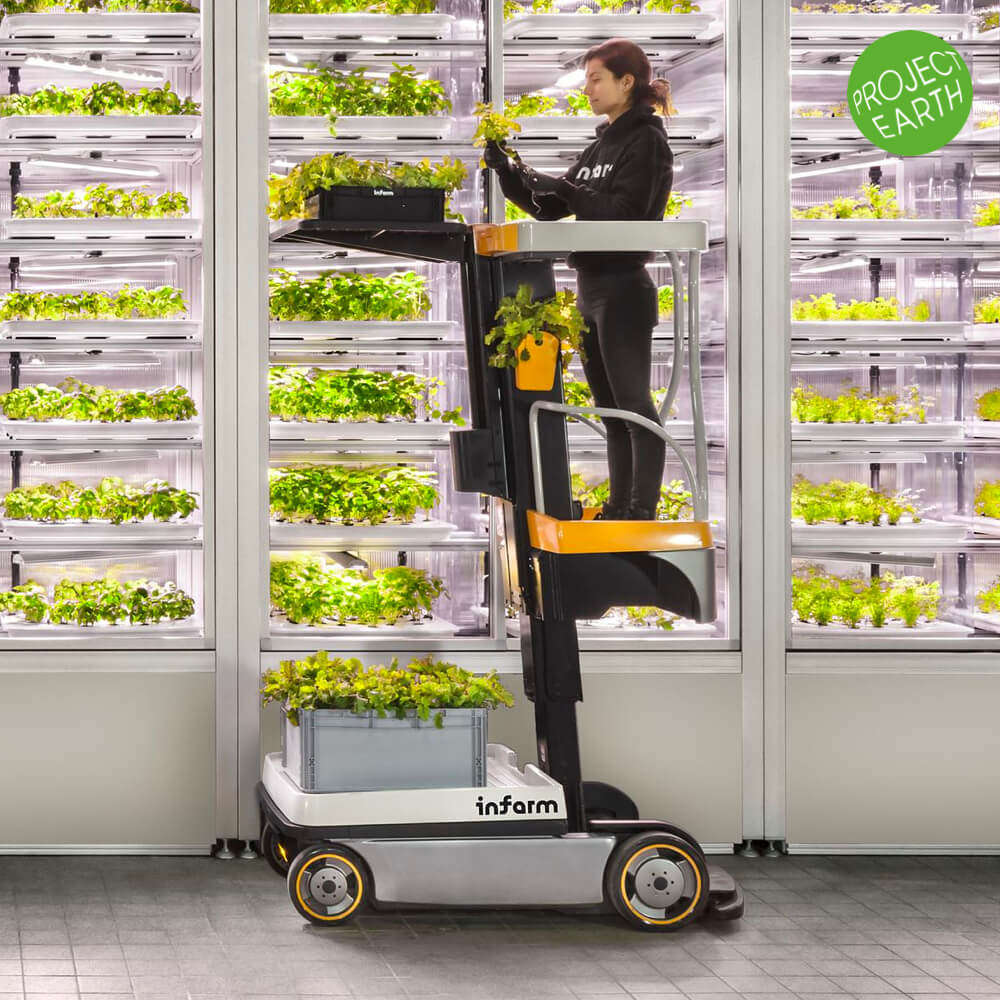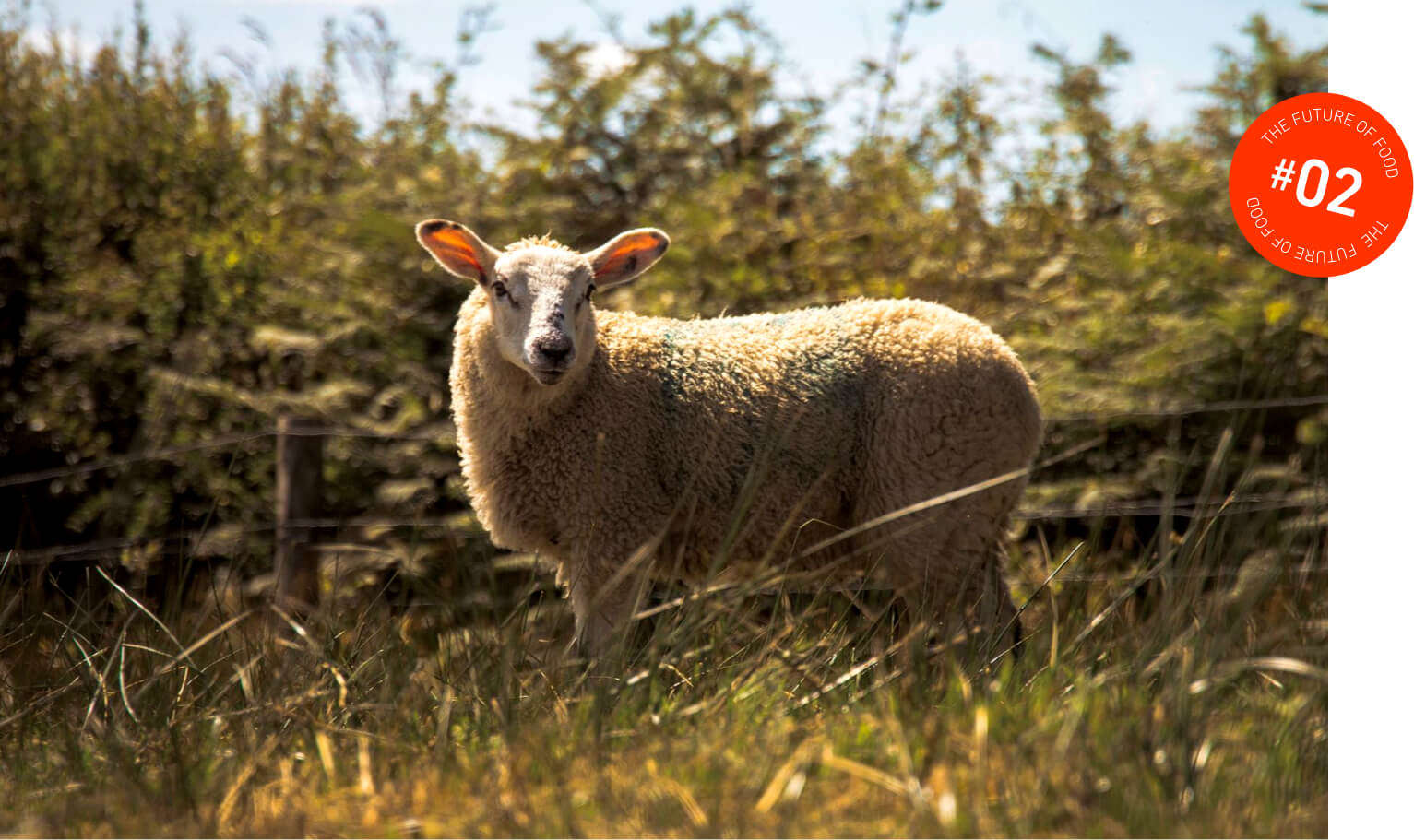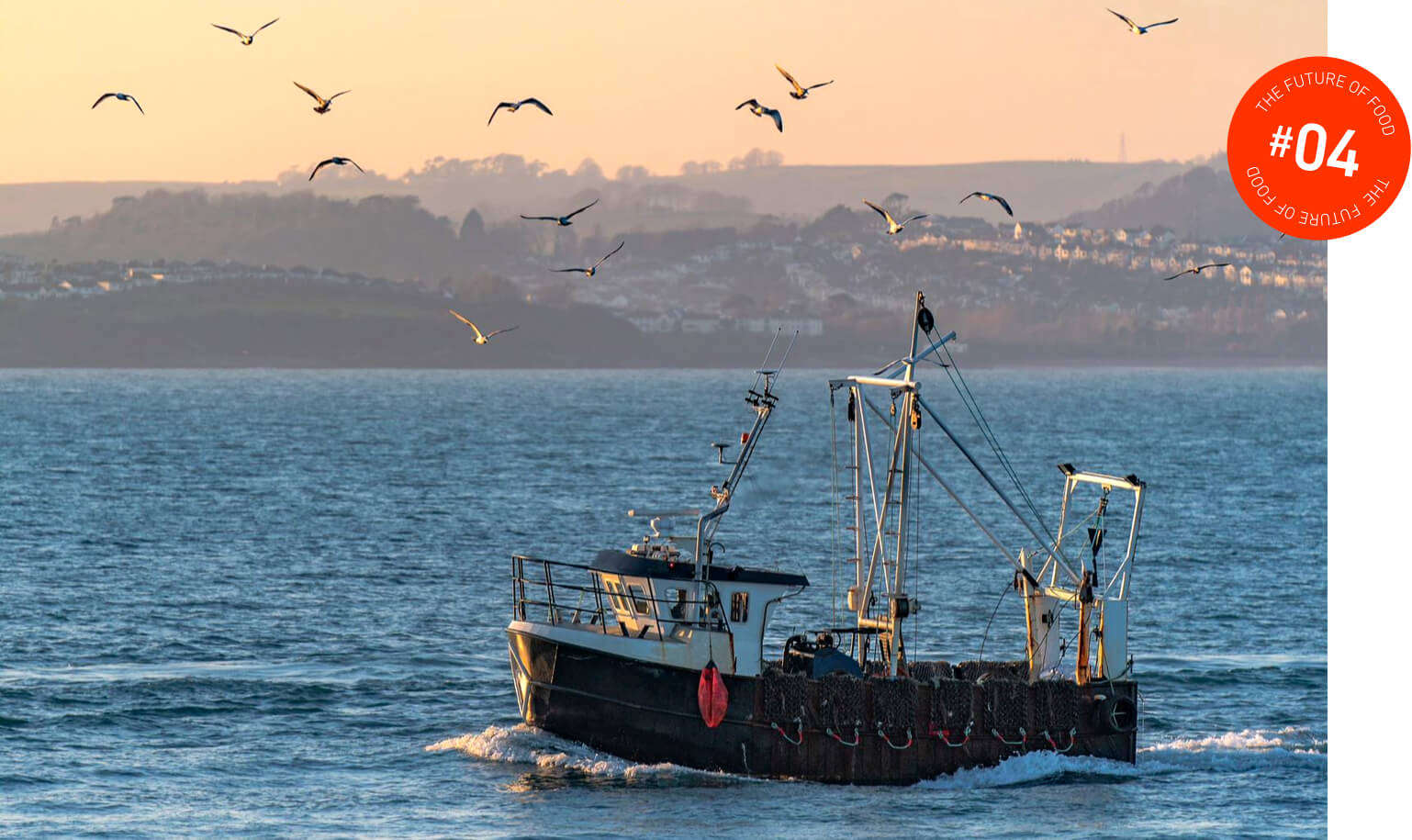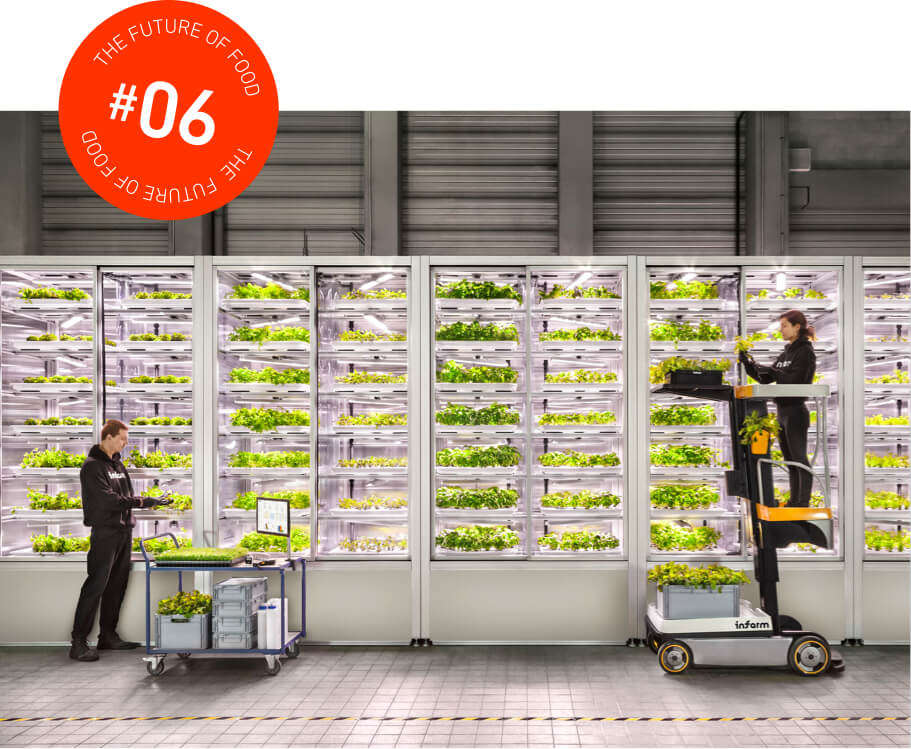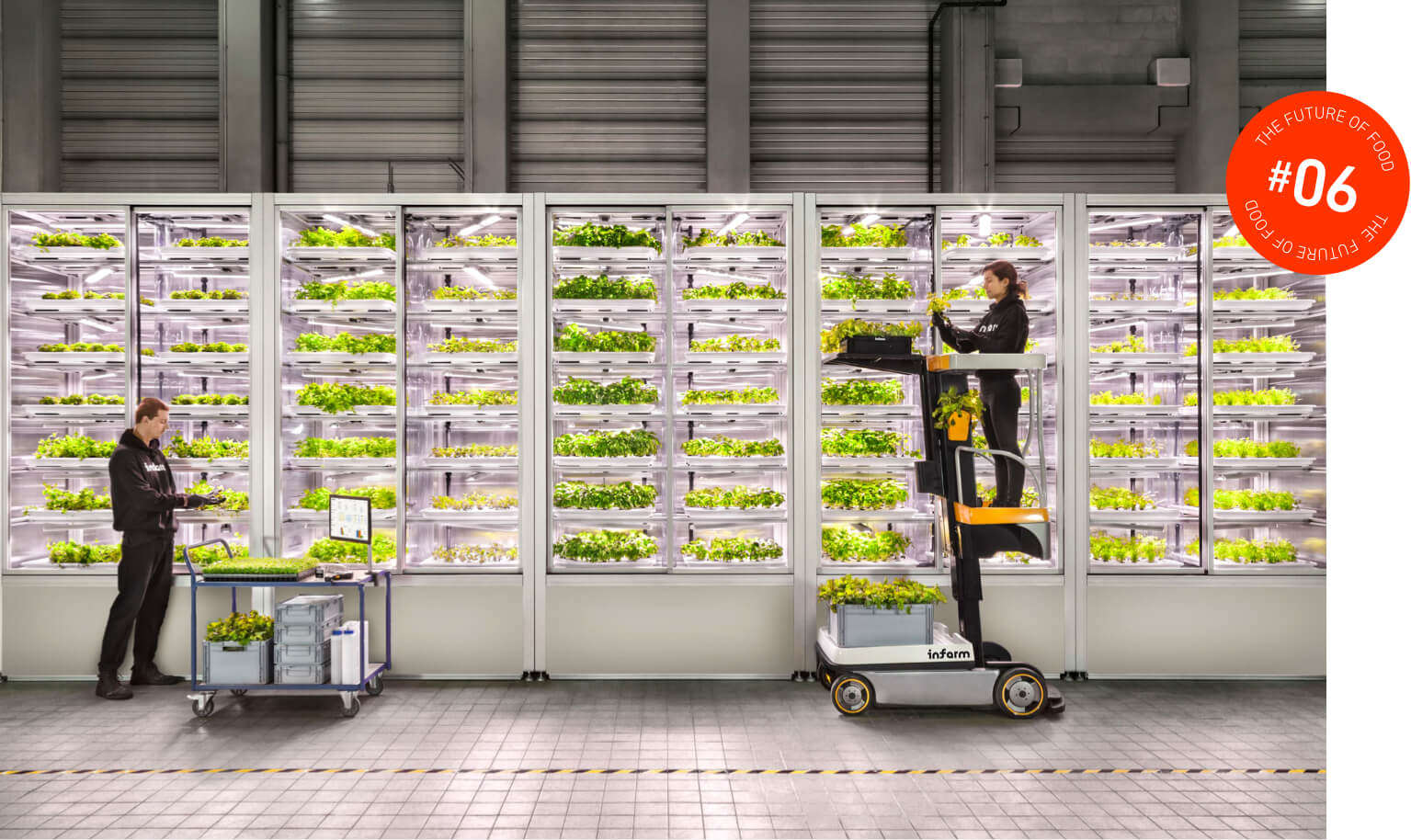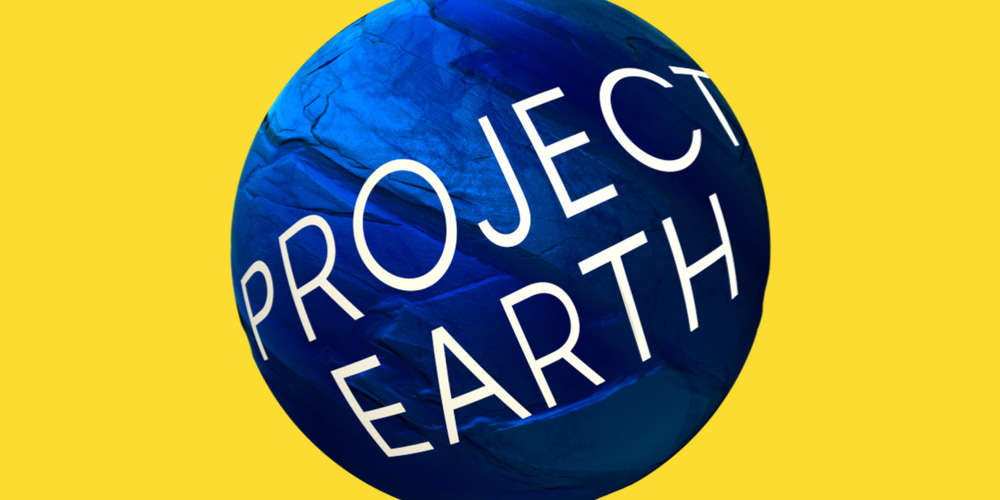- Australia / AUD $
- Canada / CAD $
- China / CNY ¥
- France / EUR €
- Germany / EUR €
- Hong Kong SAR China / HKD $
- Ireland / EUR €
- Italy / EUR €
- Japan / YEN ¥
- Kuwait / USD $
- Macao SAR China / HKD $
- Netherlands / EUR €
- Qatar / USD $
- Saudi Arabia / USD $
- Singapore / SGD $
- South Korea / KRW ₩
- Spain / EUR €
- Taiwan / TWD $
- United Arab Emirates / USD $
- United Kingdom / GBP £
- United States / USD $
- Not yours? Read more
Tell us what you think
Shop in your local currency and language
You are currently in Italy IT / EUR € store
- English
- English
- English
- English
- English
- English
- English
- English
- English
- English
- English
- English
- English
- English
- English
- English
- English
- English
- English
- English
- English
Did you know that we deliver to 130 countries or regions and offer a range of delivery options to suit you wherever you are in the world? Find out more
Sign up once to our Selfridges+ service and you can enjoy unlimited deliveries wherever you are in the world. FIND OUT MORE
International delivery
With almost everything on selfridges.com available for International Delivery, you can send your order to 130 countries or regions around the world, including North America, Australia, the Middle East and China.
Although we only offer 20 currencies to browse in online, you can still deliver to all of the following countries or regions:
- Algeria
- Andorra
- Antigua and Barbuda
- Aruba
- Australia
- Austria
- Azerbaijan
- Bahrain
- Bangladesh
- Barbados
- Belarus
- Belgium
- Belize
- Bermuda
- Bolivia
- Botswana
- Brunei
- Bulgaria
- Cambodia
- Canada
- Cayman Islands
- Chile
- China
- Colombia
- Costa Rica
- Croatia
- Cyprus
- Czech Republic
- Denmark
- Dominica
- Dominican Republic
- Ecuador
- Egypt
- El Salvador
- Estonia
- Finland
- France
- French Guiana
- Germany
- Gibraltar
- Greece
- Grenada
- Guadeloupe
- Guatemala
- Guernsey
- Guyana
- Honduras
- Hong Kong
- Hungary
- Iceland
- India
- Indonesia
- Ireland
- Israel
- Italy
- Jamaica
- Japan
- Jersey
- Jordan
- Kazakhstan
- Kenya
- Kuwait
- Laos
- Latvia
- Lebanon
- Lesotho
- Liechtenstein
- Lithuania
- Luxembourg
- Macau
- Malaysia
- Maldives
- Malta
- Martinique
- Mayotte
- Mexico
- Monaco
- Montserrat
- Morocco
- Myanmar
- Namibia
- Netherlands
- New Zealand
- Nicaragua
- Nigeria
- Norway
- Oman
- Pakistan
- Panama
- Paraguay
- Peru
- Philippines
- Poland
- Portugal
- Puerto Rico
- Qatar
- Reunion
- Romania
- Rwanda
- Saint Kitts and Nevis
- Saint Lucia
- Saint Martin (French part)
- San Marino
- Saudi Arabia
- Serbia
- Singapore
- Slovakia
- Slovenia
- South Africa
- South Korea
- Spain
- Sri Lanka
- Suriname
- Swaziland
- Sweden
- Switzerland
- Taiwan
- Tanzania
- Thailand
- Trinidad and Tobago
- Turkey
- Uganda
- Ukraine
- United Arab Emirates
- United Kingdom
- United States
- Uruguay
- Venezuela
- Vietnam
Words: Amy Newson
We all know that the way we’re currently eating is having a big impact on the health of our planet – and our health. Saying that, it can still be a tad overwhelming knowing what to eat (or not eat) when trying to be more sustainable. So, we thought we’d call in the experts – aka WWF, Eversfield Organic, Southbank Fresh Fish, Infarm and our own buyers – to explore future-facing ideas and everyday tips for eating with the Earth in mind. It’s time to change the way we eat, one delicious dish at a time!
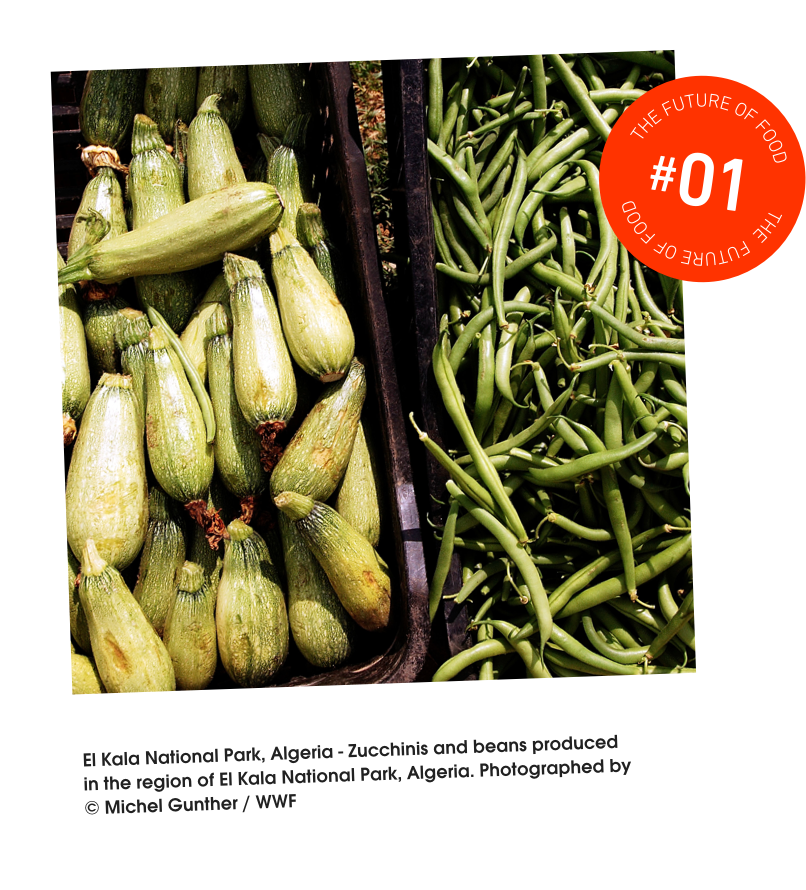
EAT LESS MEAT
The planet-positive power of eating more plants
One of the best (and easiest) ways to improve both your health and the environment is to increase how many plants you eat in comparison to animals and animal products. “Meat, fish and dairy can all be important sources of nutrition; however, in the UK we eat almost double the amount of meat compared to the global average,” says WWF’s Sustainable Diets Manager, Liam Walsh. Their 2019 Future 50 Foods Report (launched in partnership with Knorr) focusses on plant-based foods for a reason: they have a lower impact on our planet than animal-based foods. Why not try upping your intake of vegetables, grains, cereals, seeds, legumes and nuts (all easily found at your local supermarket) and reducing how much meat you eat? And, make sure you vary those, too. “Eating too much of any one food is not good for you or the planet – by eating a greater variety, you can start making a change for you, others and the planet,” says Liam.
We’re always on the lookout for amazing vegan products to stock in our Foodhall, and we’re providing more meat-free and plant-based dishes at our restaurants, like our Grass Rail vegan menu at our oldest restaurant at Selfridges London, The Brass Rail – anyone for a salt beet sandwich? Why not join us in this mission (or just try some of our delicious vegan dishes to start).
The best in vegan food and wine
Plant-based produce to tantalise the taste buds
EAT BETTER MEAT
The farms reimagining agriculture
Eating better (and less) meat is the way forward, as mainstream meat production significantly contributes to deforestation and greenhouse gas emissions worldwide (read more about our Project Earth commitments on this here). That is why we’ve partnered with Eversfield Organic (find them in our Foodhall at Selfridges London), who sell organic and wild produce. Operating closed-loop agriculture on its farm, Eversfield Organic’s goal is to have nothing from the outside aid the productivity of its farm. So, what does that mean? For a start, all nourishment for its herd (which only grazes on grass, wildflowers and hay) and the fertiliser for its market garden (the vegetables are grown in organic soil and nutrient-rich compost, and are only fed with naturally occurring nutrients, such as ‘nettle tea’) come from within the farm.
“Organic farms like ours actively work to enhance soil life, natural soil fertility and water quality,” says Anna Elliot, Sales and Marketing Director at Eversfield Organic. “If we don’t look after our soil, we will struggle to feed our population. Improving our soil health is a really important way to combat climate change – an easy way to do this is to choose 100% pasture-fed organic meat.” Simple as that: one small change can make a world of difference! For example, why not make your Sunday roast an organic one?

DID YOU KNOW?
If all UK farmland were converted to organic farming, at least 1.3 million tonnes of carbon would be taken up by the soil each year. That’s the equivalent of taking nearly 1 million cars off the road.
Working with nature, not against it, organic farming is simply better for the planet. No other system of farming does more to reduce greenhouse gas emissions from agriculture and protect natural resources.
– Anna Elliot, Sales and Marketing Director at Eversfield Organic
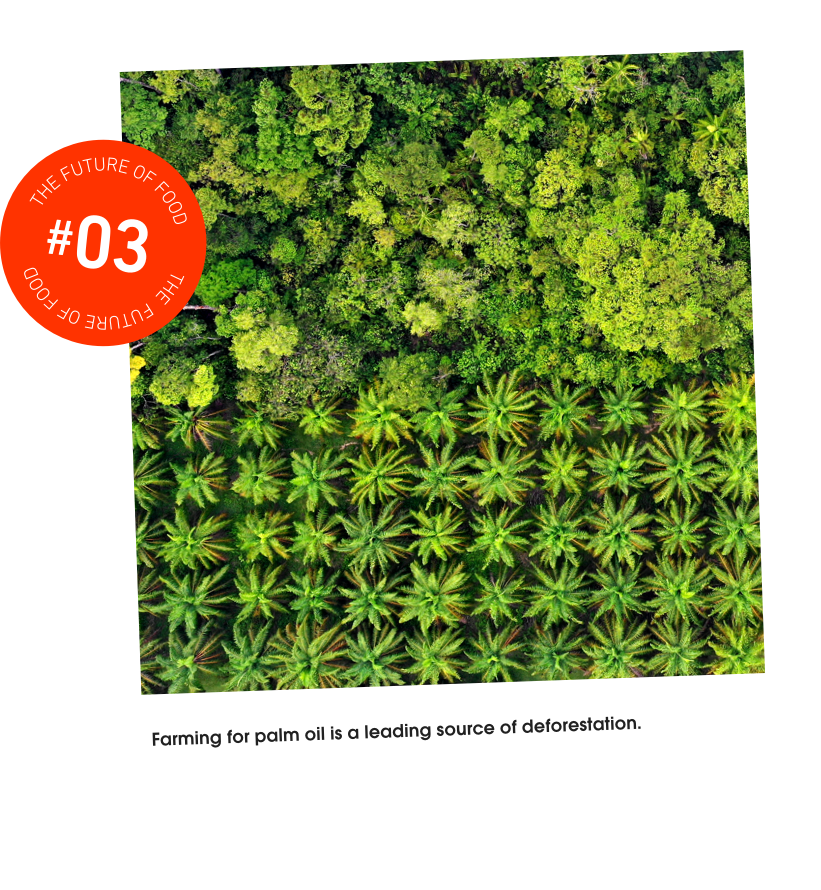
EAT WITH THE FORESTS IN MIND
The story of palm oil-free products
At Selfridges, we’re committed to tackling deforestation in the food supply chain, which is why we completely eliminated the use of palm oil in our Selfridges Selection range last year. “Palm oil itself isn’t inherently bad – in fact, it has a very high yield and is extremely versatile,” explains Jessica Abela, Product Developer at Selfridges. “The issue lies with the current demand for palm oil, which is causing mass deforestation across Southeast Asia.” Tropical forests have a rich biodiversity and are home to many species (including some near extinction), and these forests are currently being drained and burned to make way for the planting of palm. This destroying of carbon-rich soil and the releasing of carbon into the atmosphere is contributing to climate change. So, you can see why it was important to us to make our Selfridges Selection range palm oil free (as well as taking other steps towards being more sustainable, such as using home-compostable packaging, paper and card from certified, responsibly managed forests and sustainably sourced cocoa and coffee).
We believe that until palm oil guarantees zero deforestation, our customers should be given the option to buy palm oil-free products. We used our own Selfridges Selection brand to highlight the issues surrounding palm-oil production and to encourage change for the better within the palm-oil industry.
– Jessica Abela, Product Developer at Selfridges
Palm oil-free sweet treats
Tuck into our tasty line of forest-friendly bites
EAT SUSTAINABLY SOURCED FISH
The tools you need to help select your seafood
Sustainably sourced fish has long been at the top of our list of sustainability commitments at Selfridges. We launched our Project Ocean initiative back in 2011, and it remains our long-term partnership with the Zoological Society of London to help protect our oceans from overfishing and plastic pollution. So, you can see why it’s so important to us that our fishmongers (find them in our Foodhall at Selfridges London) are on the same page as us. Southbank Fresh Fish has long been committed to sourcing all fish and seafood sustainably and has spent many years working closely with the MSC (Marine Stewardship Council), MCS (Marine Conservation Society) and other NGOs to ensure that its seafood comes with the best possible credentials.
“If people do not source their fish sustainably, the oceans will be depleted, and the environment will suffer further,” says Laky Zervudachi, Director of Sustainability for Southbank Fresh Fish. “There is a growing demand to understand exactly where food is coming from and how it is produced. People want to know that they are not causing negative impacts on the planet and that it is only by demanding best practice in both wild-caught fisheries and in farmed seafood that this can be achieved.”
Good sourcing can be tricky to master, but there are plenty of ways to make sure you’re happy with your choices. Tools like The Good Fish Guide (available at mcsuk.org) or certifications by the MSC or ASC (Aquaculture Stewardship Council) are invaluable when seeking reassurance on the fish and seafood you’re buying.
We always want to encourage our customers to eat more of our wonderful locally caught seafood, which otherwise ends up being exported.
– Laky Zervudachi, Director of Sustainability for Southbank Fresh Fish
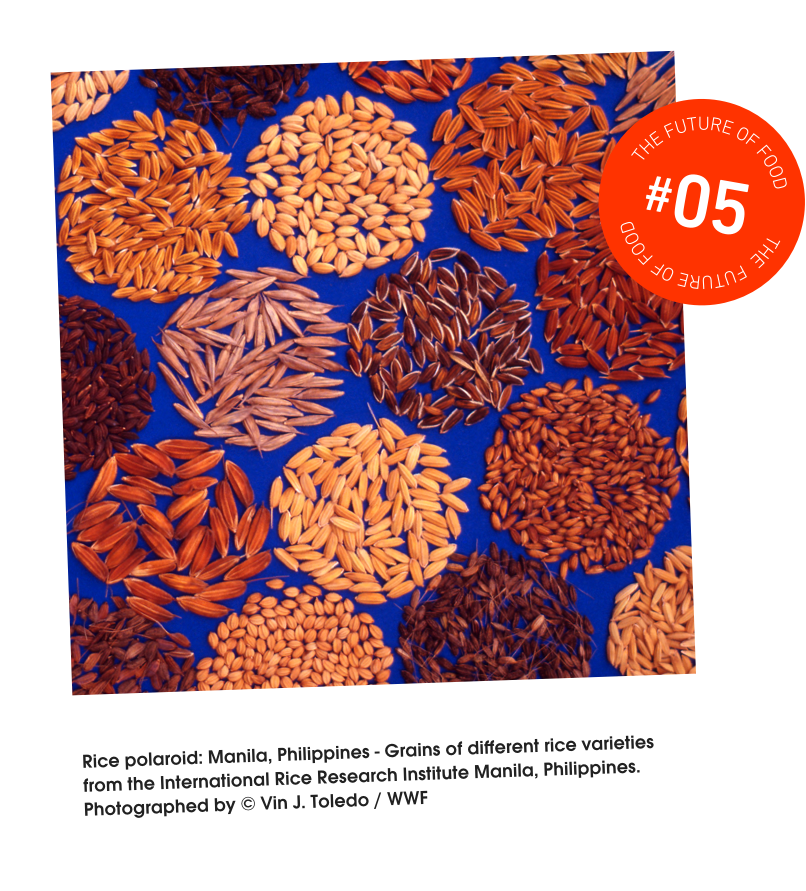
SHAKE UP YOUR STORE CUPBOARD
WWF’s pick of future-facing foods
Did you know that globally 75% of the food we eat comes from only 12 plant and five animal species? This negatively impacts not just our health but the health of the planet. “Our bodies need a variety of nutrients, and the planet also benefits from a variety of food being cultivated,” explains Liam Walsh, Sustainable Diets Manager at WWF. “At WWF, we want people to shop sustainably, with the intent to preserve the environment.”
With a growing number of ‘conscious consumers’ wanting to make the change, WWF recognised the need to help people identify more food items that are better for their health and the environment. This is why they teamed up with Knorr to create the Future 50 Foods Report to identify 50 foods that are nutritious and have a lower impact on our planet – from those that give off less greenhouse emissions when grown, to crops that need less water and are resistant to drought. The report includes 50 vegetables, grains, cereals, seeds, legumes and nuts from across the globe (think lentils, quinoa, mushrooms, seaweed and the like) that, if introduced into our diets, can help make for a more future-proof way to dine. We think it’s great, which is why we based our Project Earth Foodhall around this report – visit us at Selfridges London to discover the selection of future-facing ingredients.
Future 50 foods at Selfridges
Discover our delicious range of products that put people and the planet first
GROW YOUR OWN (OR LET INFARM DO IT FOR YOU)
The future of at-home foraging
Modern agricultural production places a huge burden on our environment. Industrial farms typically use large quantities of pesticides, destroying the soil’s natural ecosystem and biodiversity while reducing the natural nutrients, quality and taste of the final plant. Infarm, a vertical farm (an indoor urban farm that uses hydroponic units to grow fresh produce), offers an alternative food system that is resilient, transparent and affordable. Infarm was founded after a realisation that our current food system’s biggest problem is that it’s too far away from the people it’s trying to feed – so instead of building more large-scale farms outside the city, Infarm launched its lab in Berlin and started growing herbs and microgreens for locals before making its way to us at Selfridges London.
“Infarm’s approach to farming is more sustainable than industrial agriculture – and delivers better tasting products to customers,” explains Jeremy Byfleet, Infarm’s UK Operations Manager. “For example, we’re extremely efficient: each in-store farm uses 95% less water and 75% less fertiliser than soil-based agriculture; plus, we save thousands of food kilometres by not shipping from abroad. And by removing trucks from the road and not pumping harmful chemicals into the soil or groundwater, our method results in less pollution and degradation of our natural resources.”

DID YOU KNOW?
By reducing your consumption of food grown hundreds, if not thousands, of miles away, your carbon footprint will decrease. With no need for it to be tightly packaged for transit, home-grown produce also creates no plastic waste.
More of our favourite earth-conscious eats
LET'S CHANGE THE WAY WE SHOP
Join us to discover the most exciting design innovations, retail concepts and thought-provoking ideas in sustainability, and explore our series of new commitments set to radically change our business as part of Project Earth.







